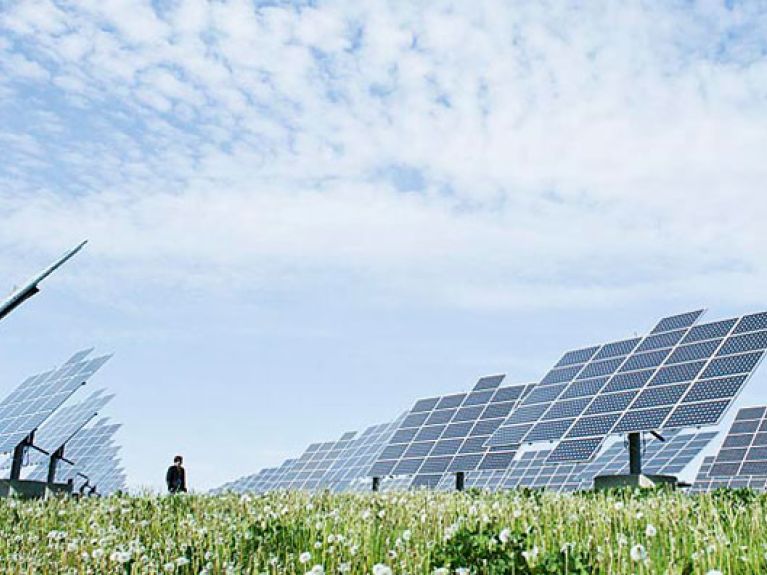A pioneer in climate policy
Internationally, Germany leads the way in climate protection and is a pioneer in the development of renewable energies. The exit from nuclear power is already under way.

The 21st century is regarded as the “century of the environment”. In other words: the extent to which the natural living conditions of future generations on Earth change will be decided in the next decades. A rise in the speed of climate change is primarily regarded as the main danger. Environmental and climate protection have long been a high priority in Germany. Internationally, Germany leads the way in climate protection and is a pioneer in the development of renewable energy sources.
With the changes to the energy sector, referred to as the Energy Reform, Germany is leaving the age of fossil and nuclear energy clearly behind it and heading fast for a future that hinges on sustainable energy sources. This involves a gradual exit from nuclear power by 2022. Furthermore, by 2020 Germany plans to have reduced its emission of carbon dioxide by 40 percent in comparison to the 1990 levels, and is even striving for at least 80 percent by 2050. By the end of 2014 it had already achieved a reduction of 27 percent.
Internationally as well, the Federal Government actively supports environmental protection, cooperation on energy issues, and climate-friendly development. Germany is the driving force in the EU, which since the 1992 United Nations summit in Rio de Janeiro has been a pioneer in international climate policy. It supports the objective of limiting global warming to a maximum of two degrees Celsius. To this end, the emission of carbon dioxide in the industrialised countries needs to be reduced by 80 to 95 percent. During Germany’s Presidency of the G7 in 2015, the leading industrialised nations resolved to speed up termination of the use of fossil fuels as an energy source. Complete “decarbonisation” is intended to be achieved before the century is out. The UN Secretariat that monitors the implementation of the framework climate convention is based in the Federal City Bonn.
An intact environment – pure air, clean water, varied nature – is a prerequisite for a high quality of life. Since 1994, environmental protection has been a national objective enshrined in the Basic Law. With regard to air and water quality, indicators have for years now evidenced considerable improvement. There has been a sharp fall in the emission of pollutants such as sulphur dioxide and nitrogen oxides – thanks as well to the introduction of filters in coal-fired power stations and catalytic converters in cars. There has also been a noticeable drop in the per capita consumption of drinking water – from a peak of 140 to around 120 litres a day.
Germany is pursuing a strategy of combining economic growth and environmental protection with a view to sustainable economics. In addition to the development of renewable energies, the main contributory factors to this are an increase in the efficient use of energy and resources, and the smart use of regenerative raw materials. It a strategy that pays off twofold, because on the one hand the impact on the environment and climate declines, while on the other new fields of business and jobs are created.